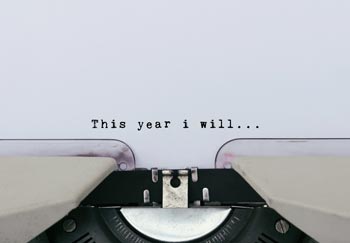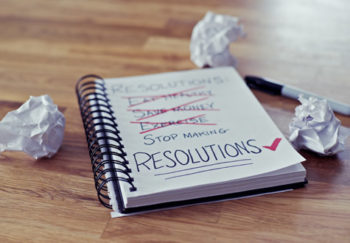
Most people struggle with healthy New Year’s resolutions, mainly because it’s hard. You have to set goals and work throughout the entire year. Non-diet resolutions are a great way to feel healthy and easy to accomplish.
Clean Out Old Medications
During your spring cleaning this year, go through your medicine cabinet and dispose of expired, unwanted, or unused medicines to avoid accidental or intentional misuse. More than 115 people in the United States die every day after overdosing on opioids, including prescription pain relievers. Try:
- Taking advantage of take-back options, like our medication disposal bin
- Following the FDA’s recommendations for safe disposal, including in the trash and toilet
Create an Advance Directive
Don’t wait until it’s too late to talk to your family about your wishes regarding medical treatment. Take the initiative this new year and look into an advance directive, living will, or do not resuscitate (DNR) order. Consider where you stand on dialysis, breathing machines, resuscitation, tube feeding, and organ or tissue donation. It can be as easy as writing your requests on a piece of paper, but make sure you:
- Sign and date the document
- Have two adult witnesses
- Give your healthcare provider a copy
Learn CPR
CPR could save someone’s life while you wait for professional medical attention. More than 70 percent of cardiac arrests occur outside of a hospital each year, so getting certified can help others. You can learn AED use and the proper way to perform primary assessments and CPR.
If you are already certified in CPR/first aid, this is a good time to double check, as your credentials are only good for two years from the award date.
You can get certified with a local American Red Cross branch, a local training center, or a fully self-directed course through the American Heart Association.
Get Your Health Record in Order
The Heath Insurance Portability and Accountability Act (HIPAA) allows you access to your health records. This gives you more control to:
- Check for mistakes
- Look at your current medications
- See current and necessary immunizations, screenings and follow up appointments
Keep Your Healthy New Year’s Resolutions
Stay on top of your health all year with tasty recipes and health tips. Subscribe to Healthy Balance.
UVA offers a secure online portal for you to manage and receive information about your health. MyChart gives you access to:
- Request medical appointments
- View your health summary
- View test results
- Request prescription renewals
- Access trusted health information resources
- Communicate electronically and securely with your medical care team
Prevent Falls in Your Home
Falling down didn’t seem like a big deal when we were kids, as we most likely did it all the time. But for older adults (65 or older), it can mean a hospital visit and major injuries.
Kitchens, bathrooms and bedrooms are higher fall risks. Be aware of your surroundings, including the floors, stairs and steps, to help prevent you or someone else from a fall injury.
Make sure your home is safe: Follow these fall prevention tips.
Install a Carbon Monoxide Detector
Carbon monoxide (CO) is an odorless, colorless gas that can kill you. Having a CO detector in your home is just as important as a smoke detector.
Anytime you burn fuel in vehicles, small engines, stoves, lanterns, grills, fireplaces, gas ranges, and furnaces, it produces CO fumes. Indoors, the fumes can build up and poison people and animals who breath it.
Prevent carbon monoxide poisoning in your home with a few simple checks with I CAN B (PDF). Having a CO detector in your home with new batteries is a great start. Don’t forget to check the batteries in your detectors; a helpful tip to remember is when you change your clocks for daylight savings.
Make an Emergency Kit
Disasters can happen at any moment and location, so be prepared with an emergency kit and a plan for evacuation and reconnecting with family members. FEMA provides a guide to help you discuss a plan with your family or friends.
After working out the details, preparing in advance will alleviate confusion and panic during a disaster. A basic emergency kit should include the recommend items:
- Water — one gallon of water per person per day for at least three days
- Non-perishable food — at least a three-day supply
- Battery-powered or hand-crank radio
- Flashlight
- First aid kit
- Extra batteries
- Local maps
- Cell phone with chargers and a backup battery
Become an Organ Donor
Being put on a transplant waitlist may feel like a death sentence due to the large amount of people in need. An average of 20 people die each day while waiting for a transplant. By becoming a donor, you can save eight lives.
Also, consider being a living donor, which is a great opportunity to donate an organ (kidney) or part of an organ (liver, lung, or pancreas) to another person in need. Help your relatives, friends, coworkers, or strangers by becoming an organ donor this year.
Sign up: It’s easy to register at Donate Life Virginia. Help your relatives, friends, coworkers, or strangers by becoming an organ donor this year.
Plan Preventive Care
If preventative care is not already in your yearly routine, let the new year encourage you to start going to your doctor for a quick checkup. Most health plans are required to cover preventive services such as immunization shots, dental cleanings, and screening tests.
As a result, these screenings allow doctors to diagnose and treat common issues, for example, as blood pressure, diabetes, cholesterol, and cancer. At your check up, your doctor can also offer suggestions for:
- Quitting smoking
- Losing weight
- Eating healthy
- Treating mental illnesses
- Reducing alcohol use
To make sure you are ringing in many more years, find a doctor if you don’t have one.

